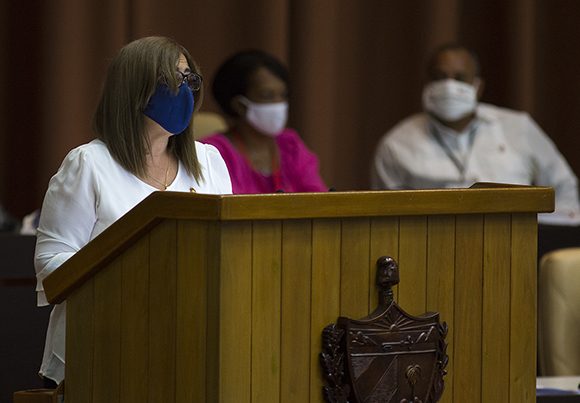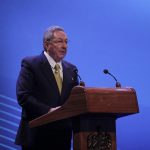Cuba: Strong restrictions and financial tensions were present in the country’s budget execution in 2020, due to the scenario in which the Cuban economy developed, impacted by the intensification of the blockade imposed by the United States and the exceptional situation created by the pandemic, Meisi Bolaños Weiss, Minister of Finance and Prices, said when presenting last year’s budget settlement before Parliament, Cubadebate publishes.
Without ceasing to meet the demands for financing to confront the pandemic – for which 1,676,000,000 pesos were allocated – or affecting social services, in July it was necessary to adjust the economy and budget plan which meant reducing income and restricting expenses, recalled the owner.
The fiscal deficit, according to the report, increased to support 8,066,000,000 pesos for the general reform of wages and pensions. However, “the execution of the expenses behaves below what was planned, which confirms the existence of weaknesses that do not allow us to foresee with accuracy, objectivity and timeliness the deviations that avoid requests for unnecessary adjustments, fundamentally in the delivery of means”.
Cuba registered a fiscal deficit lower than the approved one at 1,758,000,000 pesos, but three times higher than in 2019. While the public debt grew by 45% compared to the previous year, due to “the application of a fiscal expansionary policy” to support:
- The necessary expenses in the confrontation with the pandemic fundamentally in the public health;
- Salary payments and raw materials and materials (includes food and medicine);
- The postponement of contributions from economic actors, affecting income.
- The unfavorable non-compliance of the retail commercial circulation and external medical services affected the sources of financing for the state budget.
According to the report, tax revenues remain the main source for financing expenses: they constituted 73% of total revenues.
The income tax was affected by the fact that 267 companies closed with losses, while the contribution of non-state management forms decreased by 1%, mainly motivated by the impact of COVID-19 in the exercise of activities.
In Public Health and Social Assistance, expenses of 13,060,000,000 pesos were recorded, which supported:
- 8,300,000 consultations in hospitals and institutes;
- 93,000,000 in primary health care (includes COVID-19 expenditures),
- Coverage was provided to 10,400,000 patient days (includes the consumption of drugs, consumable and reagent materials, and other supplies).
The main investments were directed to:
- Housing Program (13 865 homes completed by local budgets)
- For networks, conductors, sewers, collectors and drains and road infrastructure works.
- Actions for the conservation and protection of flora and fauna.
- Restoration and development of works of high heritage value and cultural content in the historic center of Havana.
- Policy for changing the country’s energy matrix, renewable energy sources and increasing energy efficiency.
Havana and Villa Clara exceed the planned surplus; the planned budget result deteriorates the province of Matanzas, the rest of the provinces close with a deficit.

Redacción Digital
Equipo de redactores del sitio web de Radio Mayabeque



